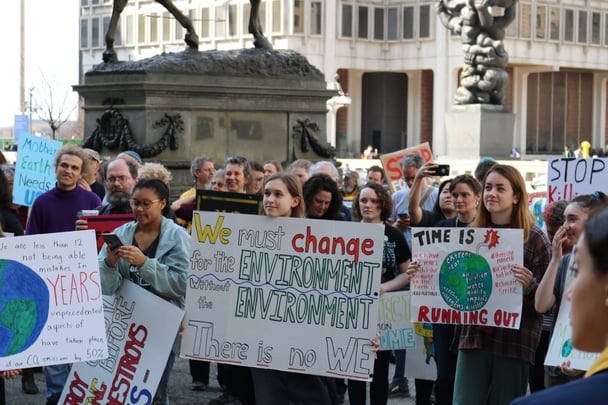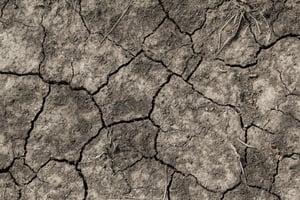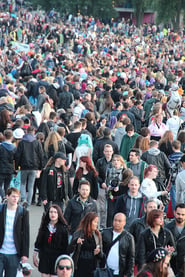
The climate change debate has centered on global warming for the last 10 years. Because the science tends to be arcane and somewhat opaque, the debate has become clouded with opinion rather than fact. However, the impact of severe weather events cannot be ignored.
Severe Weather Events
Climate scientists have identified more than 260 severe weather events over the past 20 years. The number of events studied each year has grown rapidly from 8 in 2012 to 59 in 2018.
- 31% were extreme heat events.
- 20% were rainfall and flooding.
- 18% were drought.
Immediate Impact
 You don't have to wait years for the impact of global warming to be seen. Here are just some of the ways these severe weather events have had an impact recently.
You don't have to wait years for the impact of global warming to be seen. Here are just some of the ways these severe weather events have had an impact recently.
- During the 2013 European heatwave, 735 people died in Paris and 315 perished in London.
- The 2019 flooding in the Mississippi river delta destroyed millions of acres of grain crops and left the land unusable for the near future.
- Vast Russian wildfires in 2018 destroyed 793,840 acres of Siberia. The smoke could be seen in North America.
- As of August 17, 2019, a total of 112 forest fires were reported in Russia. Temperatures in June and July were the hottest ever charted feeding fires that have torched more than 17 million acres, or 320 square miles.
- Massive Artic wildfires emitted more CO2 in June than Sweden does in and entire year.
- About 9,000 people have been evacuated as wildfires rip through Gran Canaria in the Canary Islands.
A Startling Report
 A recent United Nations Intergovernmental Panel on Climate Change (IPCC) report entitled, Climate Change and Land takes the discussion one step further. Compiled by over 100 authors from 51 countries, the report addresses greenhouse gas (GHG) fluxes in land-based ecosystems, land use and sustainable land management in relation to climate change adaptation and mitigation, desertification, land degradation and food security. Its findings are startling:
A recent United Nations Intergovernmental Panel on Climate Change (IPCC) report entitled, Climate Change and Land takes the discussion one step further. Compiled by over 100 authors from 51 countries, the report addresses greenhouse gas (GHG) fluxes in land-based ecosystems, land use and sustainable land management in relation to climate change adaptation and mitigation, desertification, land degradation and food security. Its findings are startling:
- There are a lot of mouths to feed. The current UN estimate for population by 2050 is 9.8 billion, up from 7.6 billion today.
- Roughly 70% of land that is not covered by ice is already used by humans in one way or another. The strain on the land, in short, is growing rapidly.
- Soil erosion from agricultural fields is estimated to be currently more than 100 times higher than the soil formation rate.
- Currently, 25-30% of total food produced is lost or wasted.
- Changes in consumption patterns have contributed to about 2 billion adults now being overweight or obese while an estimated 821 million people are still undernourished.
- The stability of the food supply is projected to decrease as the magnitude and frequency of extreme weather events that disrupt food chains increases.
- In drylands, climate change and desertification are projected to cause reductions in crop and livestock productivity, modify the plant species mix, and reduce biodiversity.
- As the biosphere gets warmer, we increase evaporation. And as we increase evaporation, ecosystems dry out and burn when they normally wouldn’t do that. And when soils get dry due to increased evaporation, we get longer heat waves.
The Big Picture
 The underlying theme running through the UN report is that there are no technological innovations or quick fixes that will make the imbalance between a growing human population and diminishing global assets go away. Only a seismic shift in how the human race populates this finite planet will relieve these growing natural tensions. The UN report suggests the following survival path:
The underlying theme running through the UN report is that there are no technological innovations or quick fixes that will make the imbalance between a growing human population and diminishing global assets go away. Only a seismic shift in how the human race populates this finite planet will relieve these growing natural tensions. The UN report suggests the following survival path:
- A peak and then gradual decline in population (~7 billion in 2100)
- High per capita income and reduced inequalities.
- Effective world-wide land-use regulation.
- Less resource intensive consumption, including food produced in low-GHG emission systems and lower food waste.
- Free trade.
- Environmentally-friendly technologies and lifestyles.
Our survival goes beyond global warming to our inefficient use of planetary assets. A course change is needed. The time is now.

